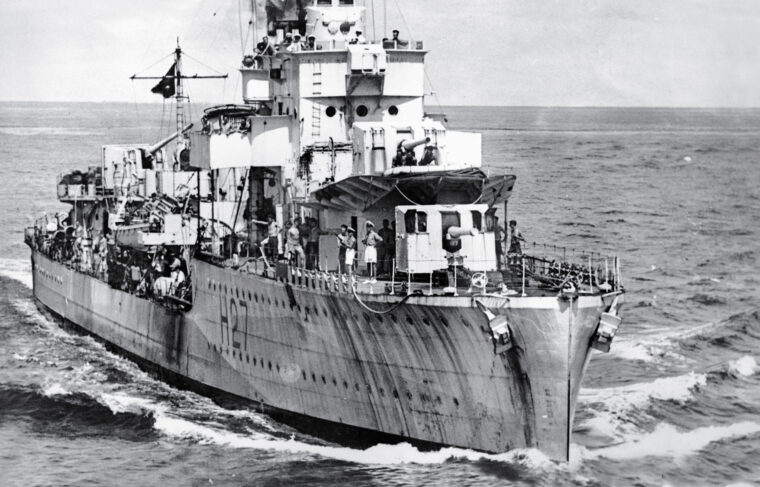
Famous Navy Ships: The HMS Electra
By Glenn BarnettWar clouds gathered rapidly once Germany invaded Poland on September 1, 1939. Allied demands that Hitler withdraw his armies went unheeded. Read more

War clouds gathered rapidly once Germany invaded Poland on September 1, 1939. Allied demands that Hitler withdraw his armies went unheeded. Read more
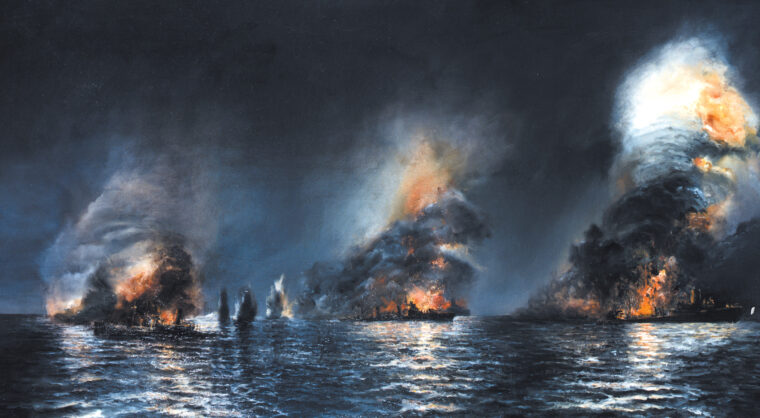
During World War II, the United States employed 288 submarines, the vast majority of which raided Japanese shipping in the Pacific, thus preventing the enemy’s vital supplies and reinforcements from reaching the far-flung island battlefields. Read more
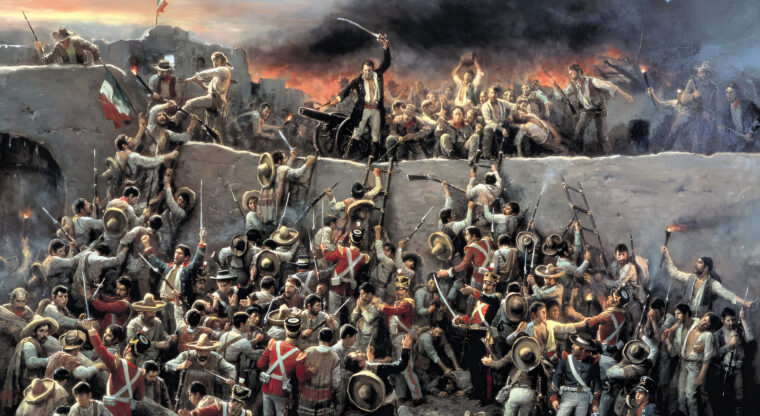
On Friday, March 4, 1836, Generalissimo Antonio Lopez de Santa Anna Perez de Labron ordered a staff conference at his headquarters near San Antonio’s Military Plaza. Read more
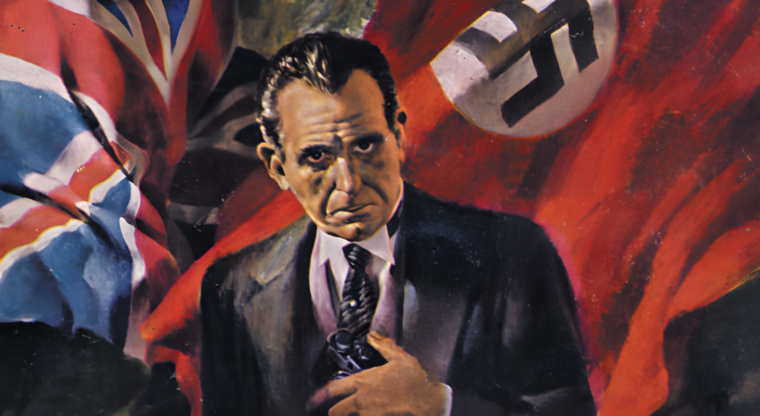
On the evening of October 29, 1943, a middle-aged man, innocuous in appearance but for his deep-set, penetrating eyes, appeared at the German embassy in the Turkish capital of Ankara. Read more
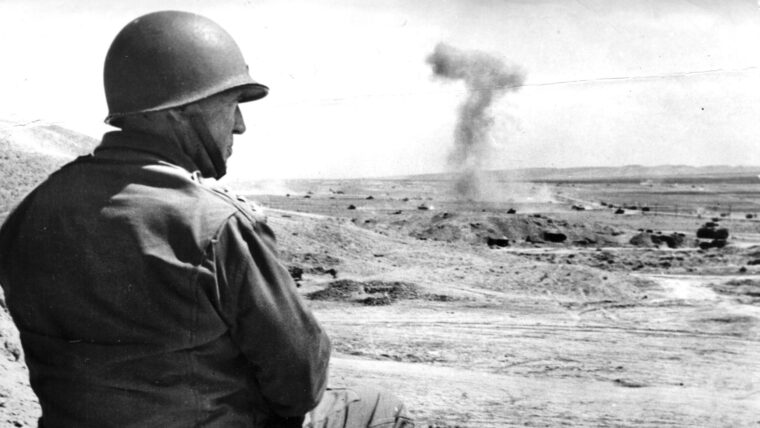
The meeting room was freezing cold on December 19, 1944, despite the small stove in the corner. It was in northern France during one of Europe’s coldest winters in memory. Read more
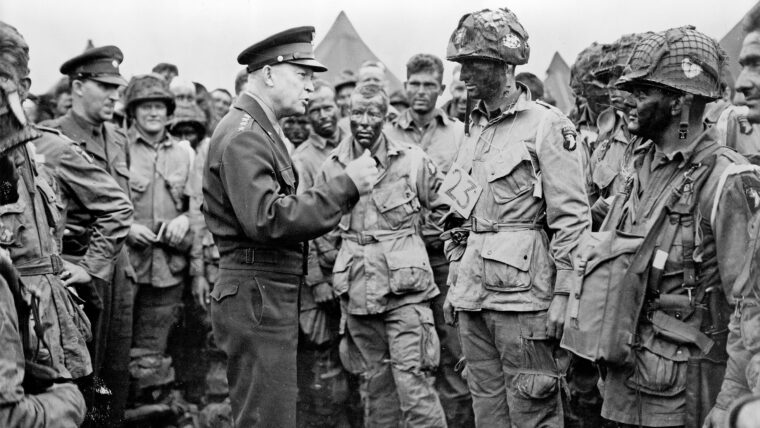
On D-Day, Sergeant O.B. Hill of the 82nd Airborne Division landed by parachute along the flooded banks of the Merderet River. Read more
Sam Hogan commanded 3rd Battalion, 33rd Armored Regiment, 3rd Armored Division in June 1944, during the Normandy campaign. Read more
The United States carried out the world’s first long-range airlift for 42 months to keep Nationalist China in the war. Read more
The 597th Field Artillery Battalion, 92nd Infantry Division, was the first, last, and only direct support field artillery battalion entirely commanded by black officers to see combat in U.S. Read more
In the chaotic period immediately after the Pearl Harbor attack, the Japanese military launched numerous offensives in support of its goals to expand Japan’s territorial holdings in Asia and the Pacific. Read more
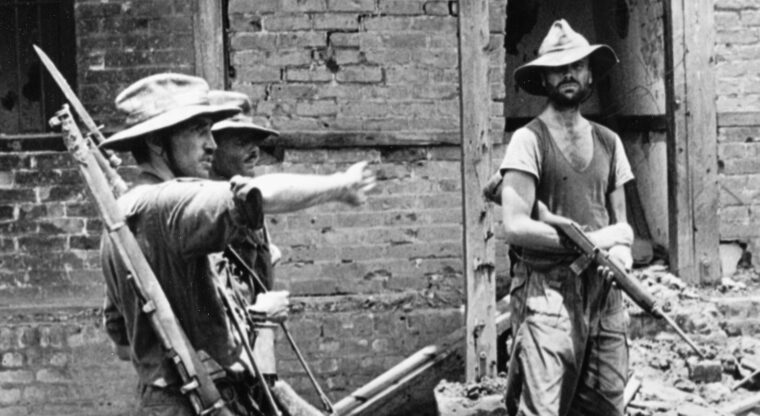
The English officer studied the Burmese river and its surroundings. The area seemed quiet, for the moment peaceful. Read more

In 150 BC a young shepherd wandered down from the hills to surrender with others of his kind to the Romans. Read more
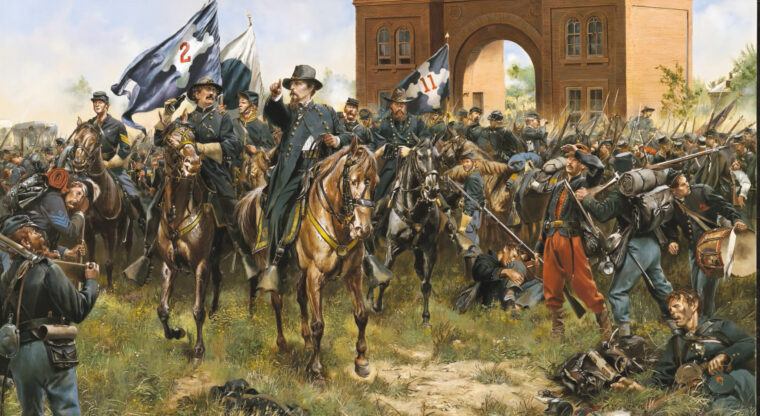
On East Cemetery Hill at Gettysburg National Military Park, an equestrian statue of Maj. Gen. Winfield Scott Hancock stands facing west toward the Evergreen Cemetery gatehouse. Read more
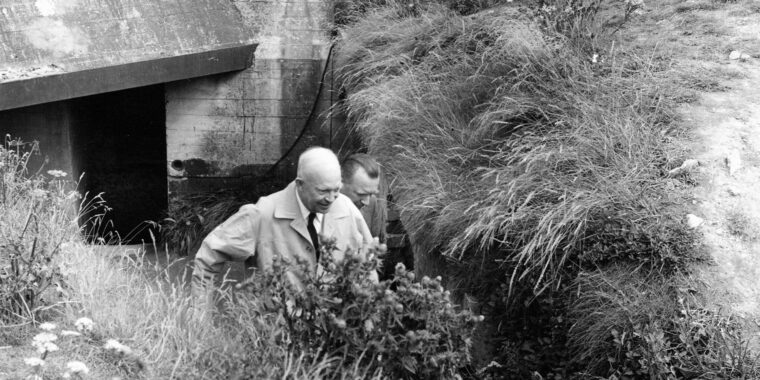
Walter Cronkite is the acknowledged dean of American journalists, an icon whose distinguished career spanned 60 years. Cronkite is best known as the anchorman and managing editor of The CBS Evening News, a position he occupied from 1962 to 1981. Read more
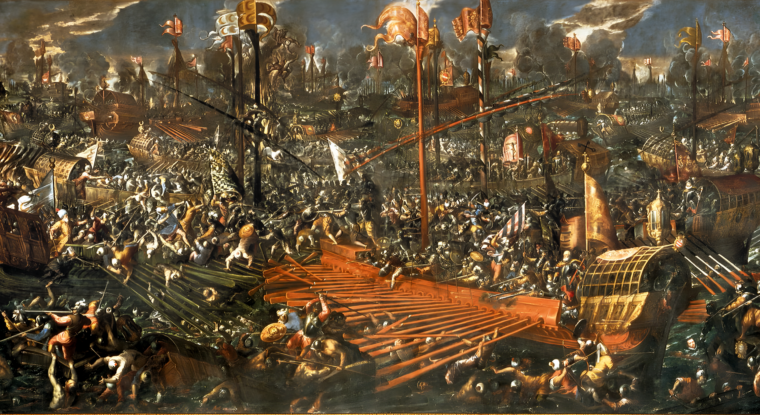
For Europe, there was great news from Malta in August 1565. The Ottoman Turks had lifted their siege and made for home. Read more
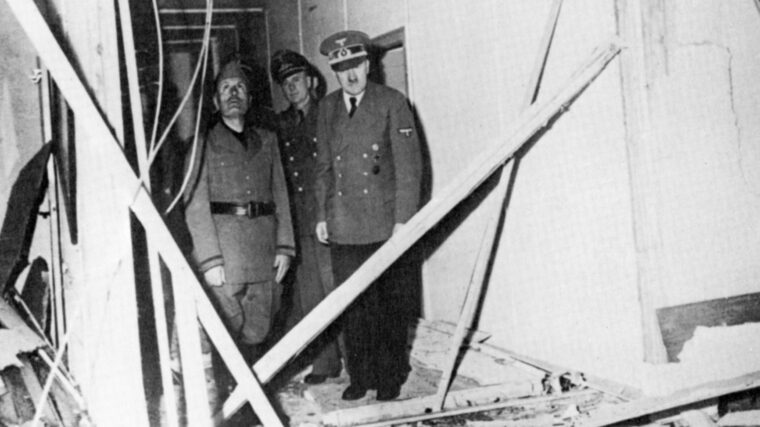
During World War II, Switzerland was one of the few neutral countries to survive unscathed amid the death and destruction that was being heaped upon the rest of Europe. Read more
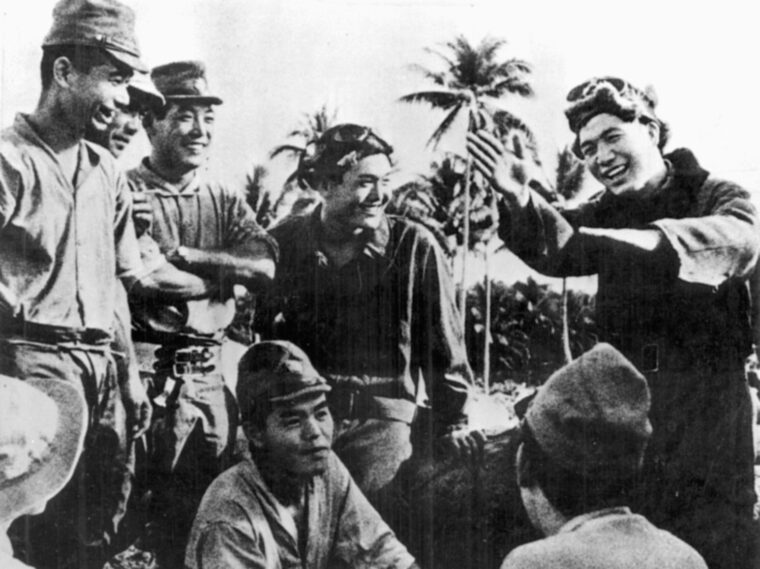
The siege of Wake Island lasted a relatively short time, from December 8 to December 23, 1941, yet it looms large in the annals of the Second World War. Read more
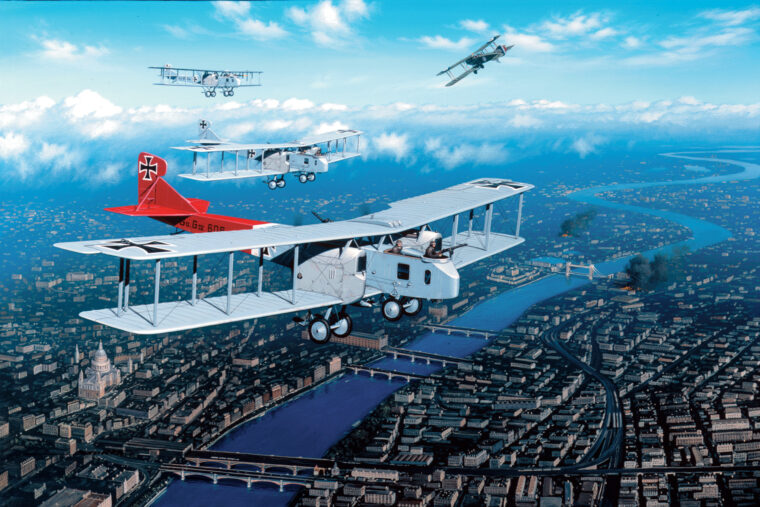
On May 25, 1917, a fleet of 21 bombers lumbered in a line at 12,000 feet over the English coast. Read more
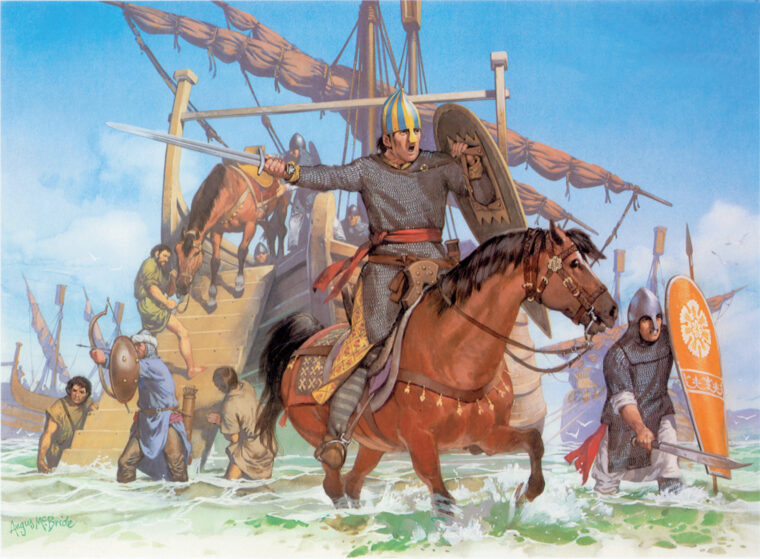
Italy in the mid-11th century was in chaos. Ostensibly held together under the auspices of papal and Holy Roman Empire authority, the peninsula had become a collection of feuding city-states, each under its own local ruler or warlord. Read more
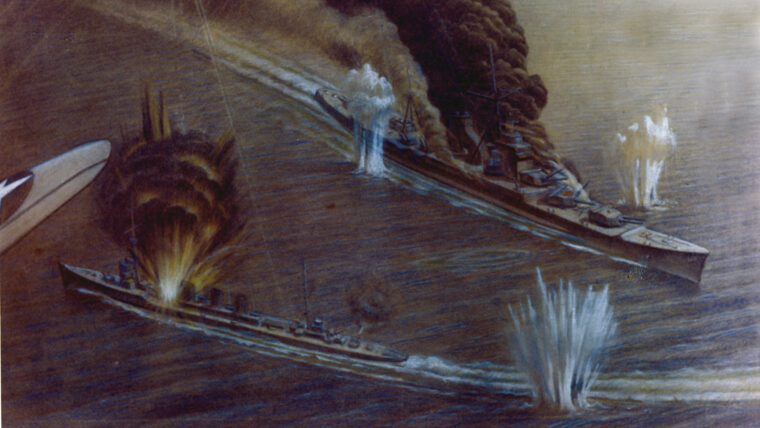
“For several months after the outbreak of the war with Japan the very fate of our nation rested in the hands of a small group of very dedicated and highly devoted men working in the basement under the Administration Building in Pearl Harbor.” Read more